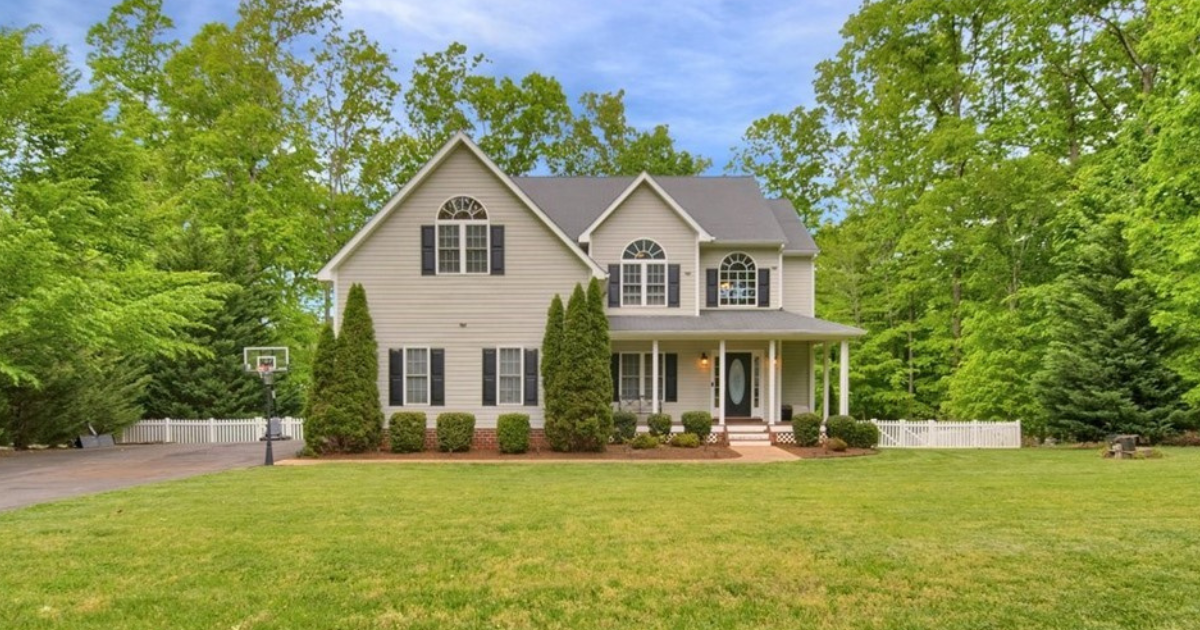Buying a home can be one of the most rewarding milestones in your life—but it also comes with a stack of financial considerations, including something many buyers don’t fully understand at first: mortgage insurance. Whether you're a first-time homebuyer or refinancing your current mortgage, it's important to understand what mortgage insurance is, when it's required, what it costs, and how it affects your long-term homeownership expenses.
At CapCenter, we believe in full transparency. That’s why we’re breaking down the essentials of mortgage insurance—so you can navigate your home financing journey with clarity and confidence.
What Is Mortgage Insurance?
Mortgage insurance is a policy that protects the lender—not you—in the event that you default on your home loan. It's typically required when you’re putting down less than 20% on a conventional loan, or when you take out certain government-backed loans like FHA or USDA mortgages.
While mortgage insurance doesn’t protect your home or equity, it plays an important role in making homeownership more accessible. By reducing the lender’s risk, it allows borrowers to qualify for a loan with a lower down payment.
Why Do Lenders Require Mortgage Insurance?
The less money a borrower puts down, the more risk a lender takes on. If a borrower defaults early in the loan term, there's a higher chance the lender could lose money—especially if home values dip or foreclosure costs are high. Mortgage insurance shifts some of that risk to a third-party insurer.
It’s also why mortgage insurance is more common with low-down-payment loans. Without it, lenders might restrict access to home financing or charge much higher interest rates.
At CapCenter, we help you evaluate different loan options to see where mortgage insurance might come into play—and how to reduce or eliminate it over time.
Types of Mortgage Insurance
There are several types of mortgage insurance, and which one applies to you depends on the kind of loan you get.
1. Private Mortgage Insurance (PMI) – for Conventional Loans
PMI is required on conventional loans (those not backed by a government agency) when the borrower puts down less than 20%. PMI can be arranged through your lender and typically costs between 0.3% to 1.5% of your original loan amount annually, depending on factors like:
- Loan-to-value (LTV) ratio
- Credit score
- Loan type (fixed vs. adjustable)
PMI can be paid in several ways:
- Monthly premium (most common)
- One-time upfront premium
- Split premium (a mix of upfront and monthly)
The good news? PMI doesn’t last forever. Once your LTV hits 78% based on the original appraised value, your lender is legally required to cancel PMI. You can also request removal once you reach 80%—or sooner if your home has appreciated and you’ve built equity faster.
2. FHA Mortgage Insurance Premium (MIP)
If you’re using an FHA loan, mortgage insurance works a bit differently. FHA borrowers pay both:
- Upfront Mortgage Insurance Premium (UFMIP) – typically 1.75% of the loan amount, rolled into the loan balance.
- Annual Mortgage Insurance Premium (MIP) – paid monthly, usually ranging from 0.15% to 0.75% based on loan amount, term, and LTV.
Unlike PMI, FHA MIP often lasts for the life of the loan if your down payment is less than 10%. This is one reason many FHA borrowers eventually refinance into a conventional loan once they’ve built equity—something CapCenter’s ZERO Closing Cost refinancing makes far easier and more affordable.
3. USDA Guarantee Fee
USDA loans also require mortgage insurance, but it’s called a “guarantee fee.”
- Upfront fee: 1% of the loan amount
- Annual fee: 0.35% of the loan amount (paid monthly)
Like MIP, this insurance stays in place for the life of the USDA loan. But USDA loans also come with no down payment requirements and competitive rates, making them a good option for qualified rural borrowers.
4. VA Funding Fee (Not Mortgage Insurance)
VA loans for eligible veterans do not require mortgage insurance. Instead, borrowers pay a one-time VA funding fee, which helps sustain the VA loan program.
At CapCenter, we honor those who served by offering ZERO Closing Cost VA Loans, helping veterans keep more of their hard-earned savings while still locking in great rates.
How Much Does Mortgage Insurance Cost?
The cost of mortgage insurance varies widely depending on your loan type, credit profile, and down payment amount. Here’s a rough idea of what you might expect:
- Conventional PMI:
- $30–$70 per month for every $100,000 borrowed
- Higher credit scores get lower premiums
- FHA MIP:
- 1.75% upfront + 0.55% annually (typical for most borrowers)
- USDA Annual Fee:
- 0.35% annually + 1% upfront
- VA Loan:
- No ongoing mortgage insurance; just the funding fee
Let’s say you buy a $350,000 home with 5% down using a conventional loan. Your loan amount would be $332,500. If your PMI rate is 0.8%, you’d pay about $221/month in mortgage insurance—until you reach 20% equity.
Now imagine if you refinanced with CapCenter after a few years, and your equity had increased. You could eliminate PMI entirely without paying refinance closing costs—because at CapCenter, we cover those.
Can I Avoid Mortgage Insurance?
Yes, but it usually means putting at least 20% down or qualifying for a specific type of loan.
Here are a few paths that can help you avoid or reduce mortgage insurance:
- Make a 20% down payment – The most direct way to avoid PMI on a conventional loan.
- Use a VA loan – If you’re eligible, VA loans have no monthly mortgage insurance.
- Use lender-paid mortgage insurance (LPMI) – The lender pays the premium and charges a slightly higher interest rate.
- Consider a piggyback loan – Take out a second mortgage to cover part of your down payment and avoid PMI on the first loan.
CapCenter’s licensed loan consultants can help you model each scenario so you can choose what works best for your goals and budget.
How to Remove Mortgage Insurance
You don’t have to be stuck with mortgage insurance forever. Here's how to get rid of it, depending on your loan type:
PMI (Conventional Loans)
- Automatic cancellation: Lender must cancel PMI when your LTV reaches 78% based on the original purchase price/appraisal.
- Request early removal: You can request PMI cancellation once your LTV hits 80%—especially if your home value has gone up.
- Refinance: If your home’s value has appreciated, refinancing could eliminate PMI faster—and with CapCenter, you won’t pay closing costs to do it.
FHA MIP
- Refinance into a conventional loan: Once you’ve built 20% equity, refinancing is the best way to shed MIP.
- Loan term & down payment considerations: If you put 10% or more down on an FHA loan, MIP ends after 11 years.
USDA & VA Loans
- USDA fees don’t go away unless you refinance.
- VA loans don’t require monthly mortgage insurance, so there’s nothing to cancel.
How Mortgage Insurance Impacts Your Monthly Payment
Let’s say your monthly payment estimate includes:
- Principal and interest: Based on loan size and rate
- Property taxes and homeowners insurance: Escrowed
- Mortgage insurance: Added if applicable
That insurance premium could add hundreds to your monthly costs—especially on high loan amounts or FHA loans. That’s why understanding your insurance obligations upfront is critical when budgeting.
CapCenter helps homebuyers accurately estimate their full monthly payment, including PMI or MIP, with no surprises at closing.
CapCenter’s Approach to Mortgage Insurance
We don’t charge hidden lender fees. And we don’t believe in pushing borrowers toward products that don’t fit their long-term goals just to close a deal.
What we do offer is:
- ZERO Closing Cost mortgages
- Full-service guidance from licensed loan consultants
- Straightforward comparisons between FHA, conventional, VA, and USDA options
- The ability to refinance and eliminate PMI—without paying a dime in lender closing costs
Want to know what your payment might look like with or without mortgage insurance? Use our Mortgage Calculator to explore scenarios in real time.
Final Thoughts
Mortgage insurance might seem like just another fee—but it’s also a tool that allows more people to buy homes without waiting years to save up a large down payment. While it does add to your monthly cost, it can be temporary—and with the right planning, you can minimize or eliminate it over time.
At CapCenter, we’ll help you understand when mortgage insurance applies, what it costs, and how to structure your loan in a way that aligns with your financial goals. If you’re considering buying or refinancing, let’s talk. With ZERO Closing Costs and a team of experts ready to guide you, there’s no better time to move forward with confidence.
Need help deciding the right mortgage path for you?
Connect with a CapCenter loan consultant today—or start your preapproval online.




